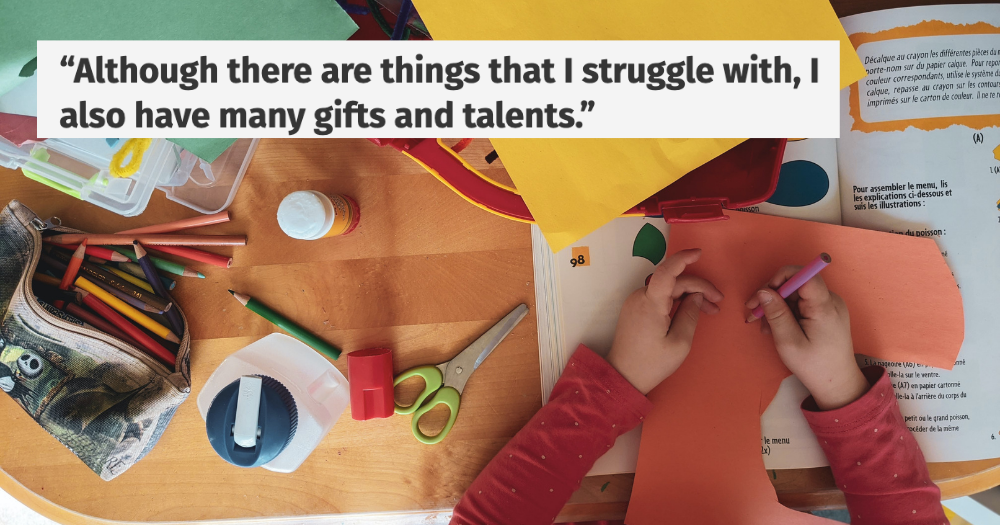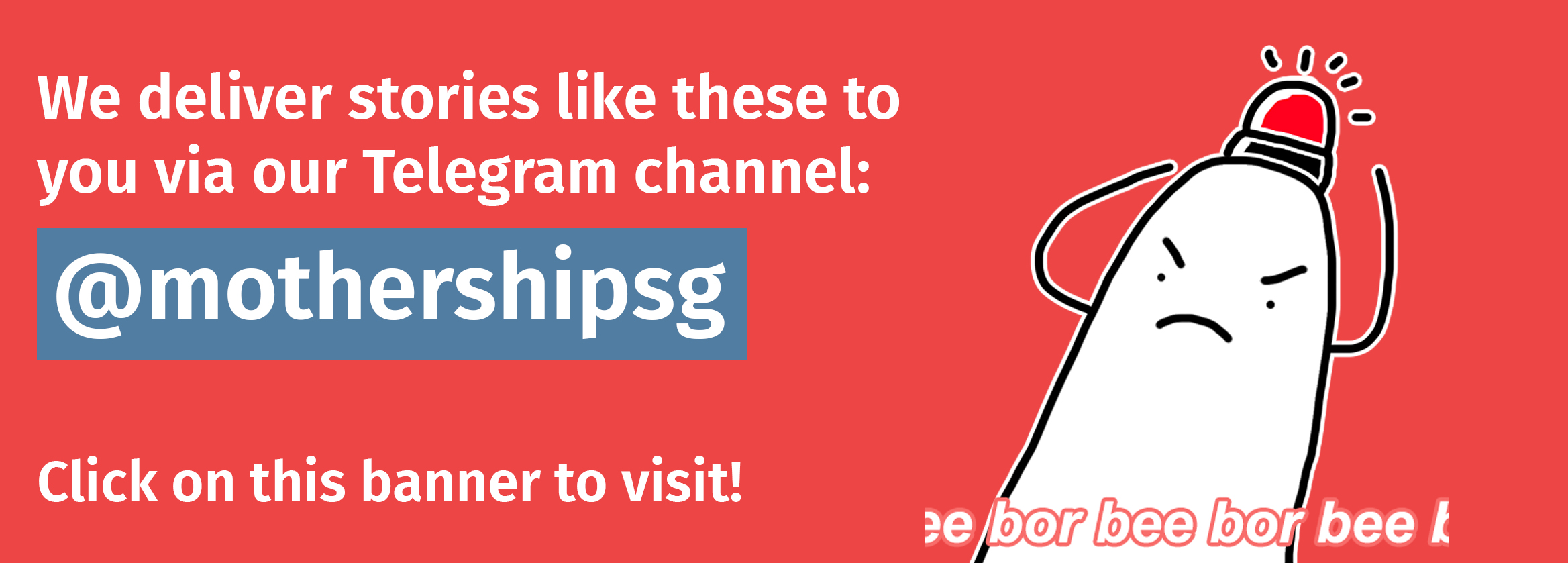PERSPECTIVE: An 11-year-old girl shares about her experience growing up as a child diagnosed with Asperger Syndrome, a disorder that is on the autism spectrum.
She writes about how she has learned to recognise her own strengths and talents, and her hope that Singaporean society will be less hesitant to discuss issues such as autism.
Here, we have reproduced Ella Grace Fernee's essay from The Birthday Book Jr 20/20: Seeing Clearly titled "An Aspie Girl in a Neurotypical World".
Mothership and The Birthday Collective are in collaboration to share essays from the 2020 edition of The Birthday Book Jr.
The Birthday Book Jr is a collection of 56 essays featuring young people in Singapore, who come from various walks of life.
Apart from showcasing the diversity of young voices in Singapore, these essays also call attention to issues that matter to children, and the broader world.
By Ella Grace Fernee, 11
I came into the world on Jun. 17, 2009, surprisingly six weeks earlier than I was supposed to. Like most babies, I was screaming like a banshee (a very petite one).
Being born so early, I spent my first two weeks of life in the care of the Intensive Care Unit. I know that this may not have anything to do with me being "on the spectrum" but I thought I may as well mention that, as some medical experts think that premature babies are more likely to develop autism than those that don’t arrive early.
Just like any 'normal' baby until 18 months old
For the first year of my life, I was like any other normal baby, but when I was about 18 months old, I wasn’t meeting some of the milestones a baby should have achieved by then such as controlling my balance, sitting upright and so on.
At kindergarten, more problems occurred: I began to withdraw, isolating myself from the other toddlers. This was when my parents (my Mom in particular) picked up on the fact that something was going on with me.
They took me to see many specialists and doctors to figure out what was wrong with me, but each had a different opinion as to what was causing the problems.
Finally, when I was three years old, I was diagnosed with "suspected" Asperger Syndrome Disorder (ASD), which is also known as high-functioning autism; quite common in girls, but difficult to detect, making an accurate diagnosis hard to achieve.
I first learnt I had Asperger's in year 2 of school. At first I didn’t understand a thing about it, the word was so new to me, but I understood that it made me different.
Asperger syndrome is on autism spectrum
Asperger syndrome is part of the autism spectrum. They call the disorder a "spectrum" because there are many levels of autism — mild (the type I have), moderate and severe. Sometimes autism has little "add-ons" to the diagnosis, like dyslexia and Sensory processing Disorder (SPD).
I also have SPD, which affects my hearing: some noises that don’t bother others — humming, raspy breathing, and chewing with your mouth open — really bother me. My sense of touch is affected too and certain textures bother me like inseams of clothing and even the texture of some food.
Many people are disbelieving to learn that I am on the spectrum because my autism was barely noticeable. But it feels very real to me.
Seeing a different perspective on the world
Aspies like me have a different perspective on the world — it feels like we see different shades of colours, that most others are colourblind to. We hear sounds that no others can hear, feel things no others can.
Being born with Asperger's, I struggle with certain things that come easily to neurotypical people.
I used to have a lot of difficulty with my motor skills, which meant I had difficulty using some of my muscles correctly and with my coordination. I had a lot of trouble when it came to holding things correctly; for example, when I held a pencil or crayon, I’d grip it with my whole fist, this made learning to draw and write a huge challenge.
Sometimes I’d get so frustrated that I would do anything to avoid any activity related to that sort of thing.
But with perseverance and support, I eventually learned to grip it the right way and do not struggle anymore. Now drawing and writing are something I’m really good at.
Many gifts and talents
Over the years, my social skills have really improved, and I’ve been making a lot of friends. However, compared to a lot of my best friends, I am very introverted, and being social all day at school takes up a lot of my energy and wears me out, but I’m still very proud of how far I’ve come with my skills.
Although there are things that I struggle with, I also have many gifts and talents.
When I was little, I was interested in ancient history and would talk nonstop about it. Unfortunately, not many 5 year olds were as invested in the history of ancient Egypt as me.
I am also quite good at drawing and literature. With help from occupational therapy, I started teaching myself how to draw and I practiced really hard. Writing has become something I’m very good at.
So I was thrilled when I was given the opportunity to contribute to this book.
Sometimes still feel disappointed and compare self
Looking back, I’ve come so far since my diagnosis, but I still have lots of pieces to fit in my puzzle.
I have such a strongly built personality, and I’m thriving. I have the support of my loving family, encouraging teachers (this school year has been amazing and I have a lovely pure-hearted teacher) and my supportive and caring friend group.
Sometimes, even with the progress I have made, I can still feel a bit disappointed with myself and compare myself to my friends.
"Ella, why can’t you be popular like her?" "Ella, why can’t you be as smart as her?"
But in the end I realise how unnecessary it is, because although it might not seem like it, I try to imagine how many people would like to be as humorous and vibrant as me.
I remind myself of how strong a person I am and have gotten more confident in myself. I am unique and amazing, no matter how differently my brain is wired.
There shouldn't be shame in discussing issues like autism
People in Singapore are reluctant to discuss issues like autism in Singapore.
There really shouldn’t be any shame attached to it and society should lose any fear that’s there, as it doesn’t benefit anyone to pretend it doesn’t exist or just sweep it under the carpet.
Things are improving, but we still have a very rocky path ahead of us.
I wish I could explain clearly to others how the world appears through my eyes, and I hoped that sharing my experience in this book would provide that clarity.
Have an interesting perspective to share or a commentary to contribute? Write to us at [email protected].
If you happen to be in the education space and think this essay may be suitable as a resource (e.g. for English Language, General Paper or Social Studies lessons), The Birthday Collective has an initiative, "The Birthday Workbook", that includes discussion questions and learning activities based on The Birthday Book essays. You can sign up for its newsletter at bit.ly/TBBeduresource.
Top image adapted from Sigmund on Unsplash.
If you like what you read, follow us on Facebook, Instagram, Twitter and Telegram to get the latest updates.

